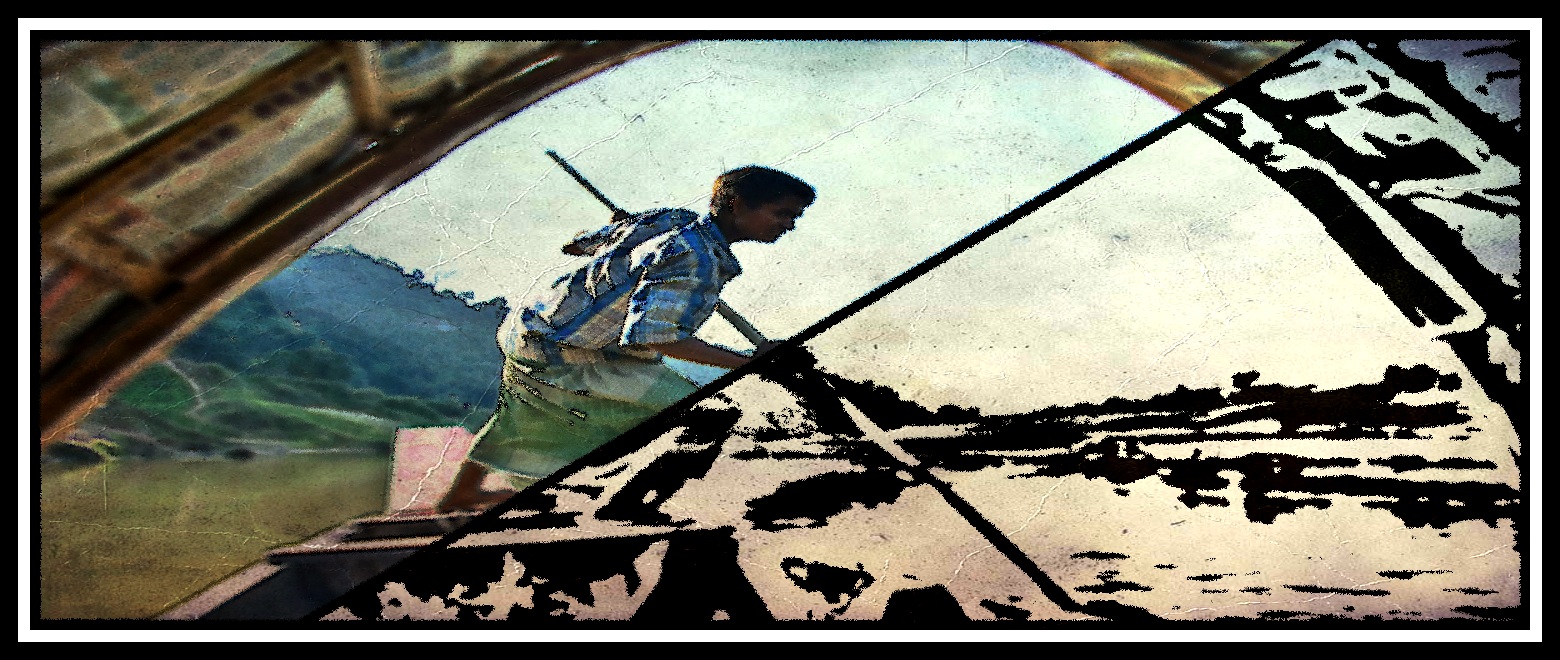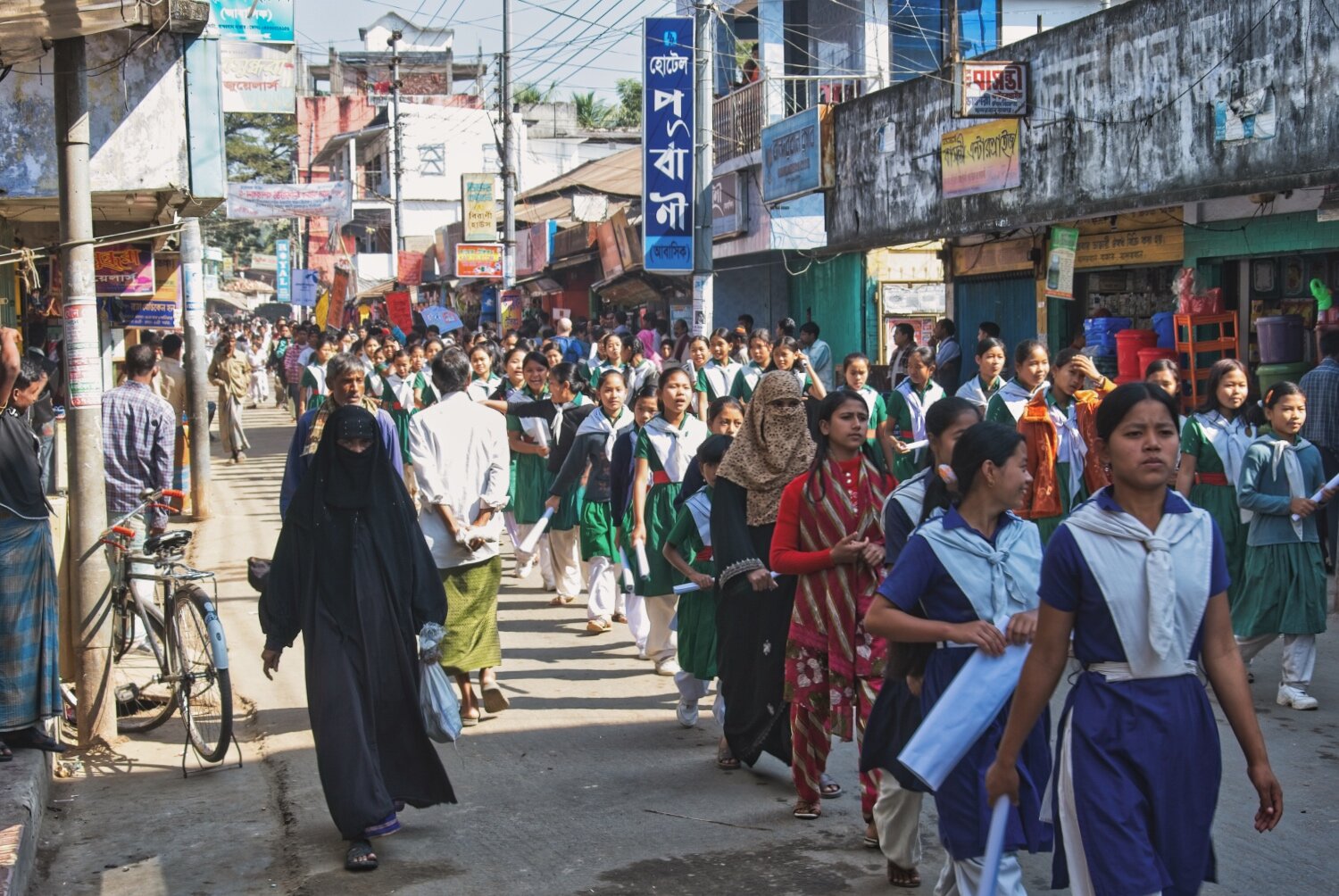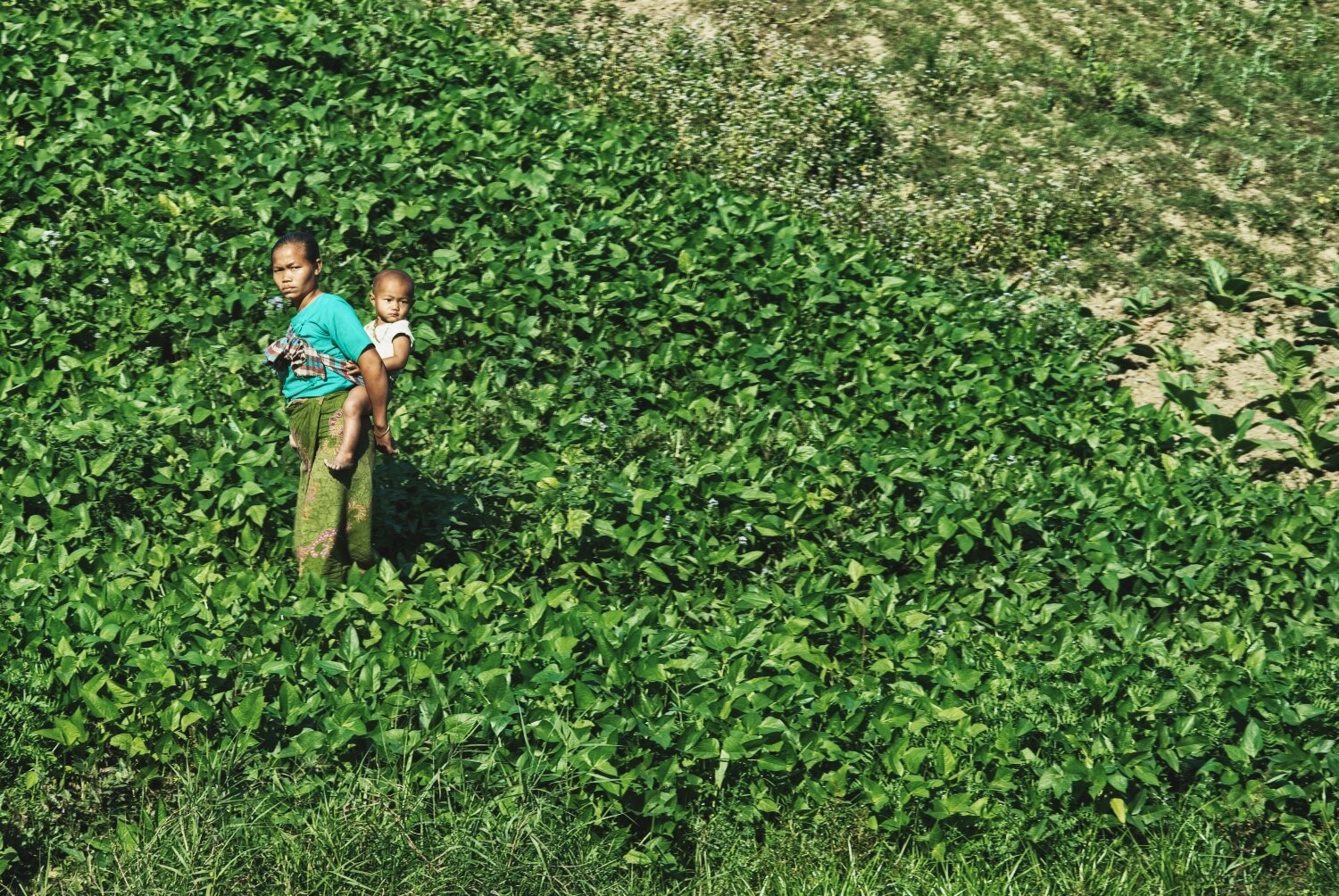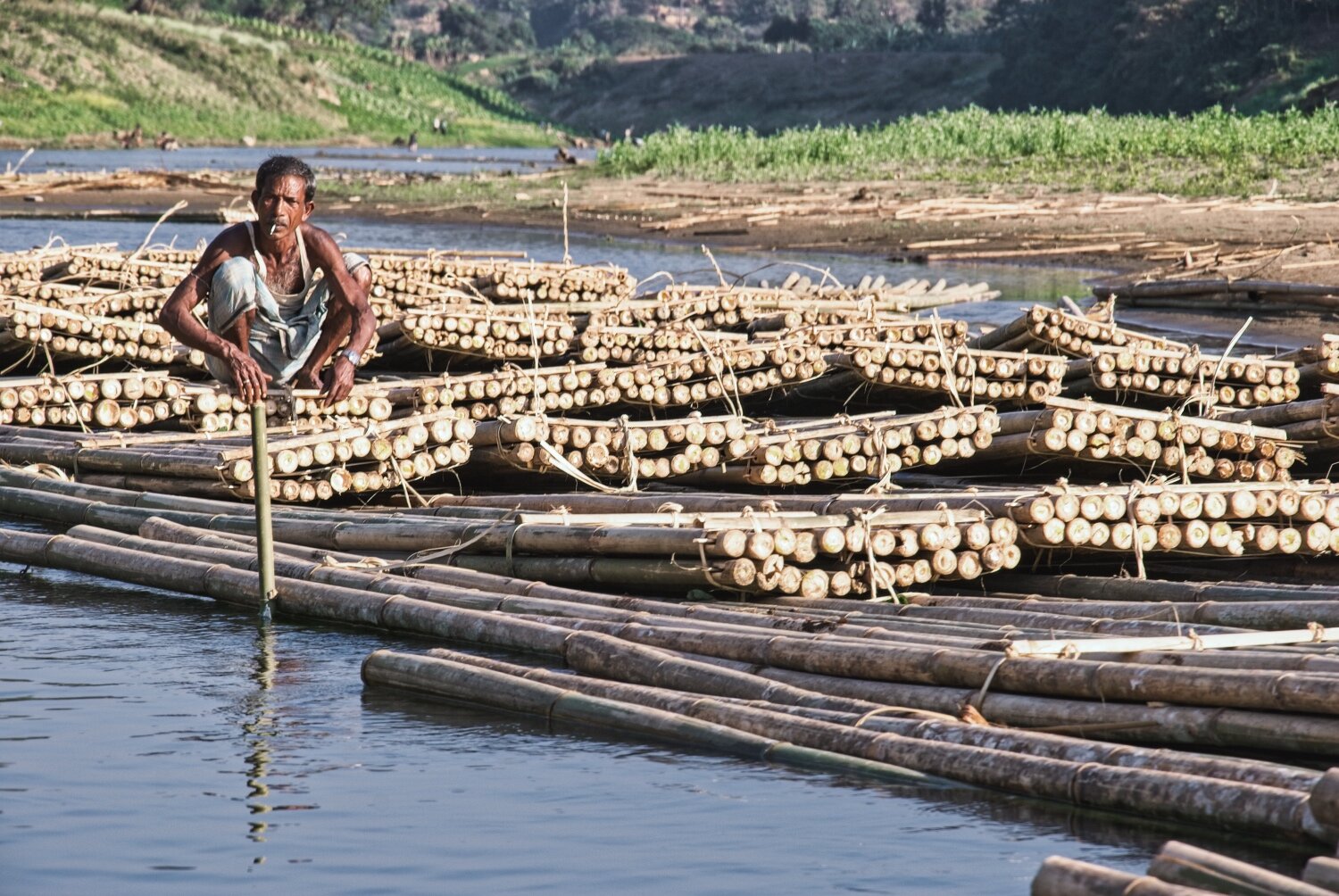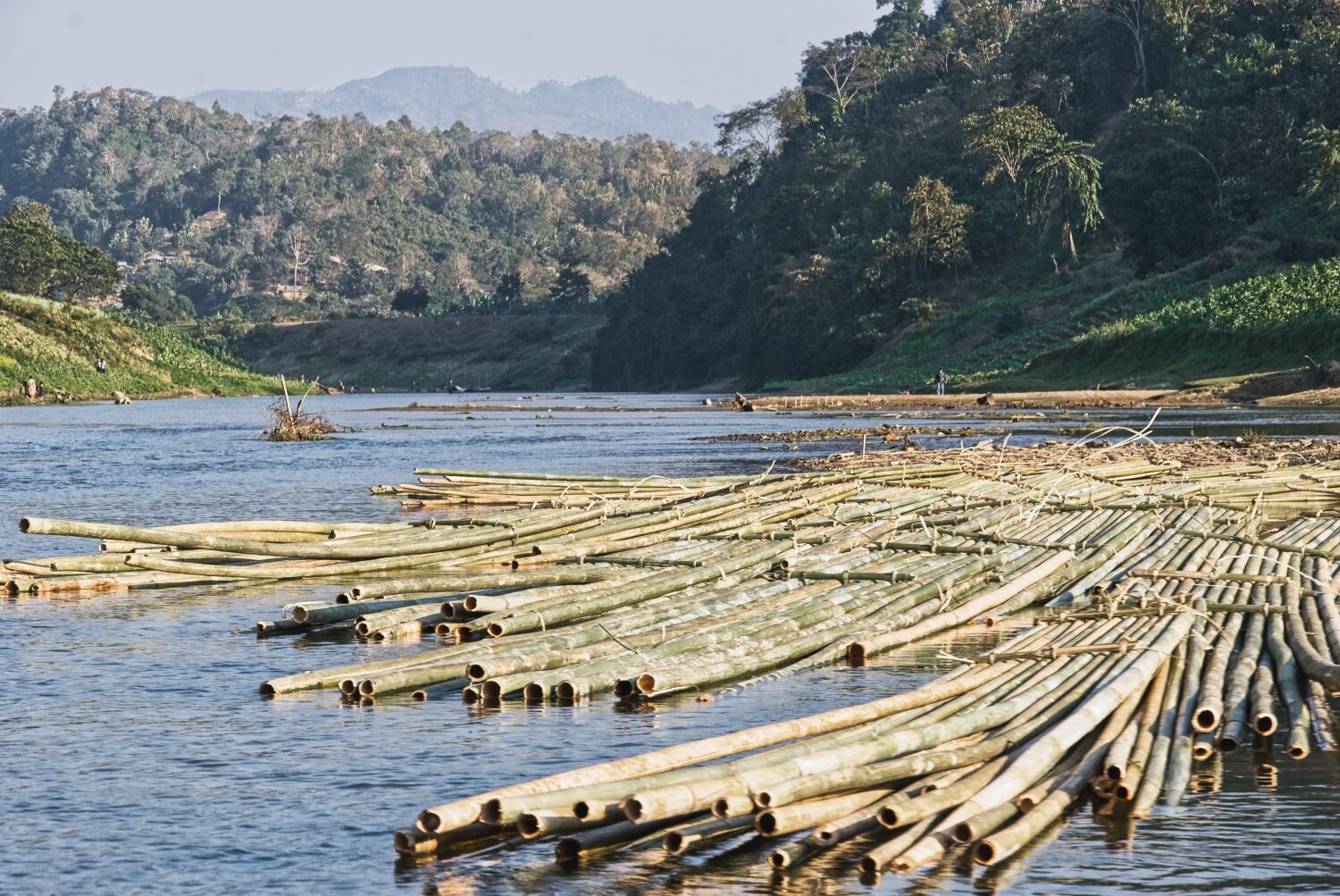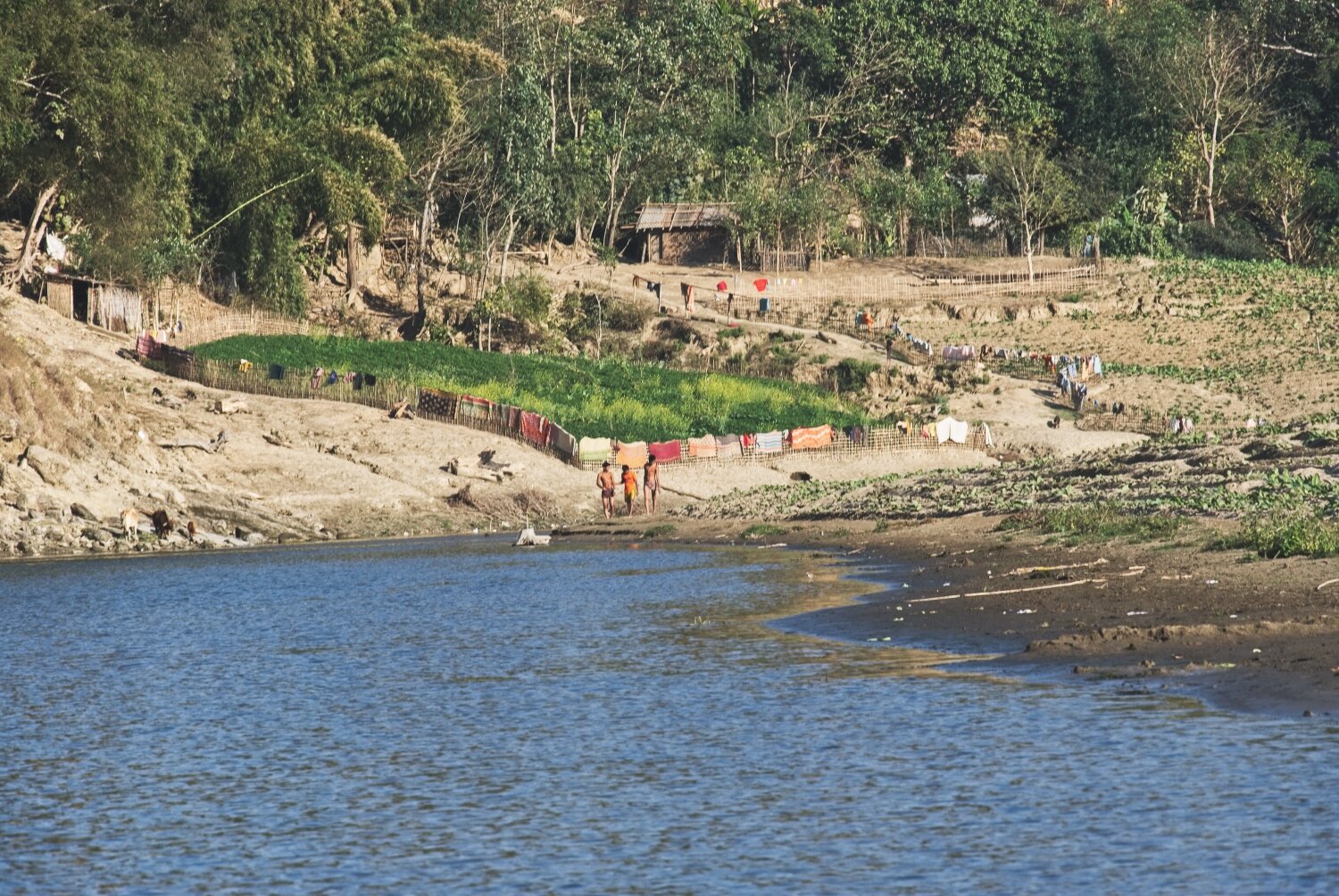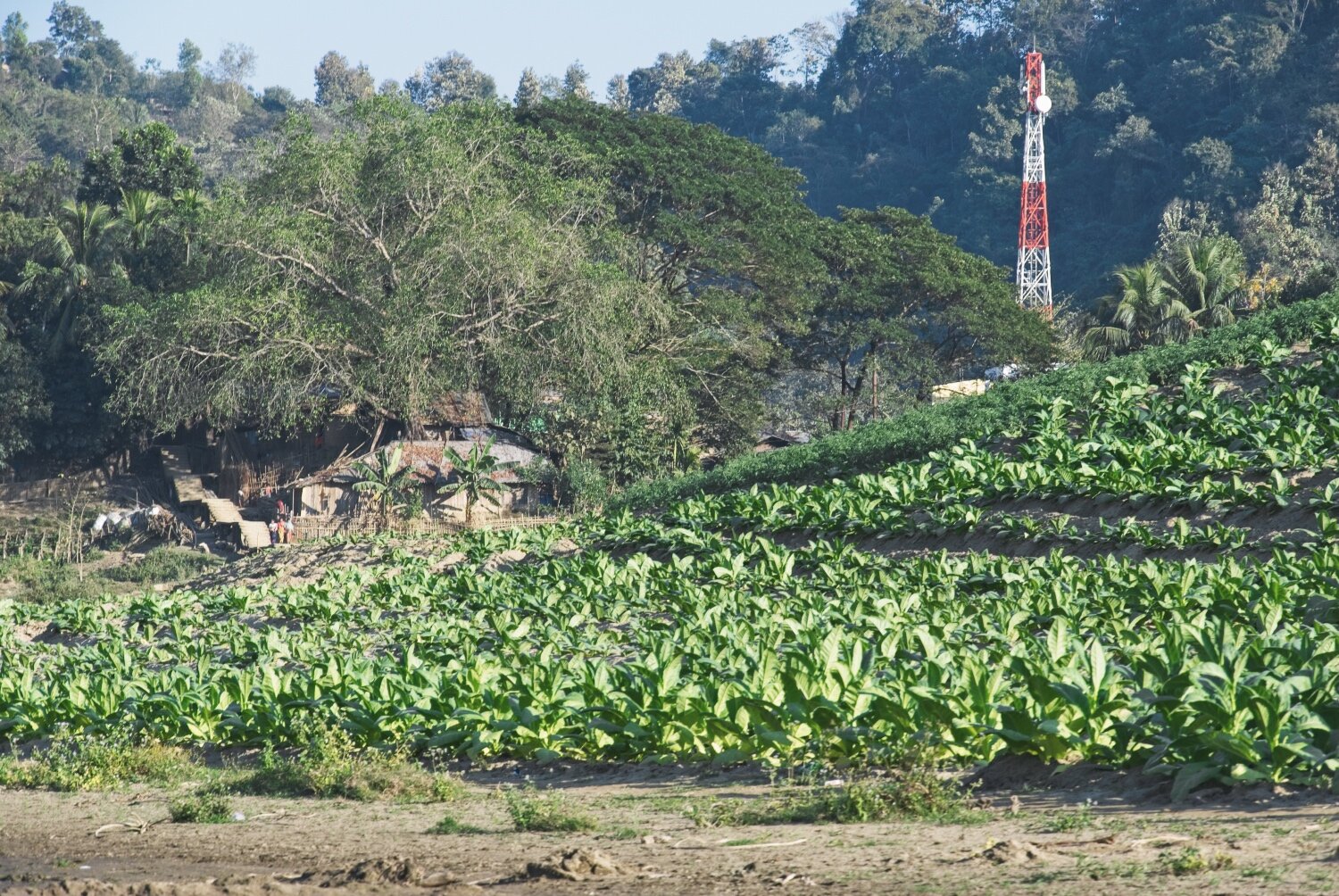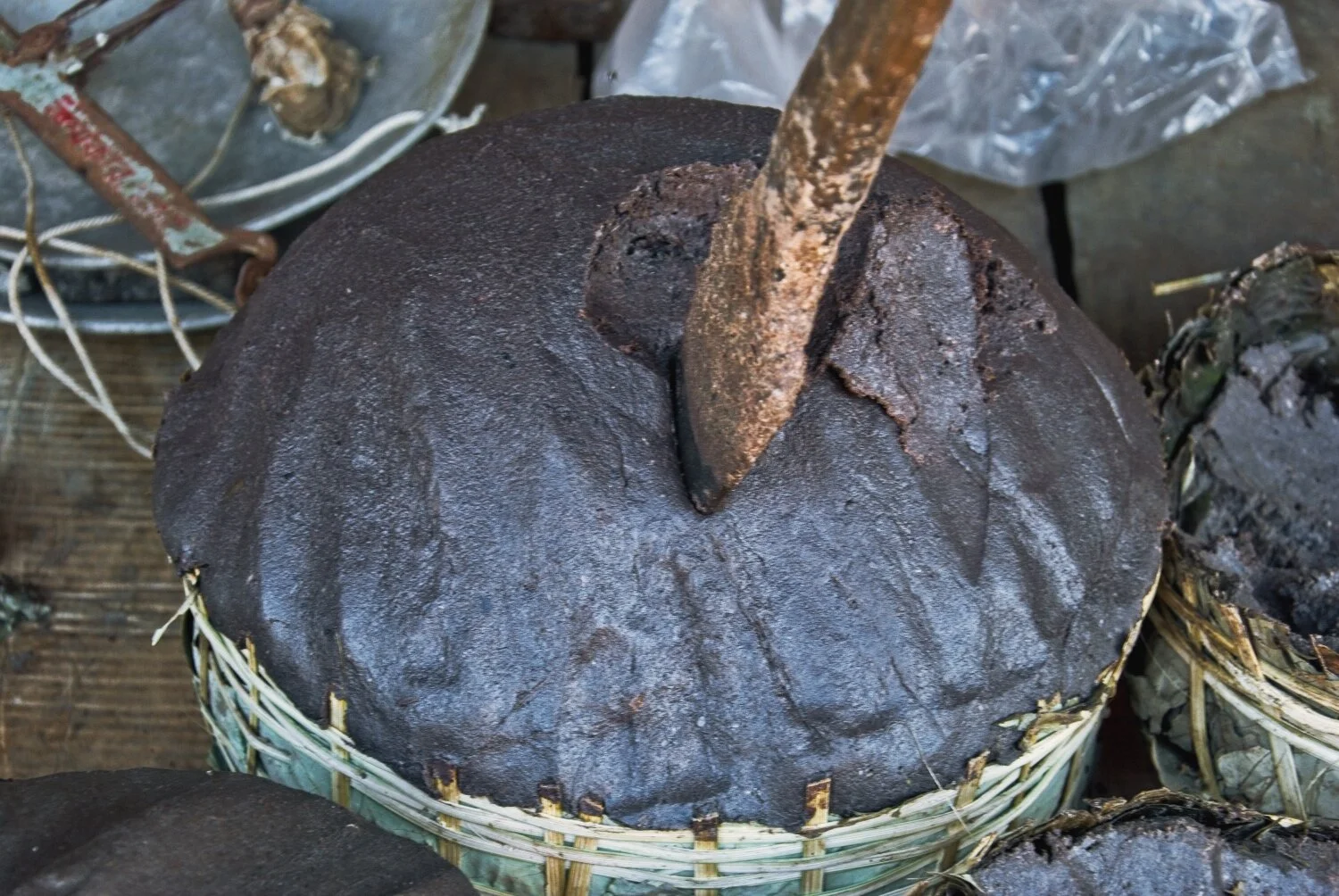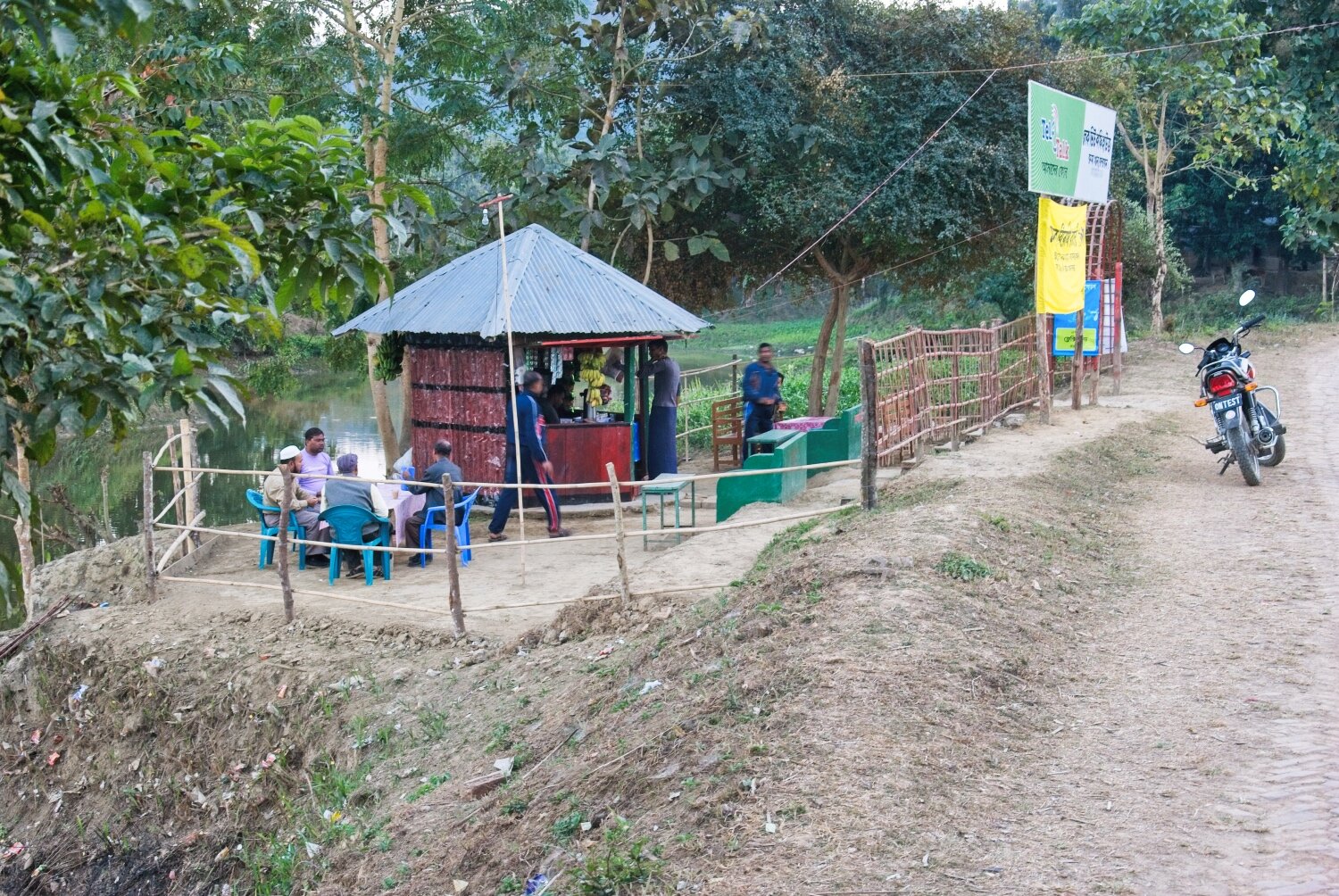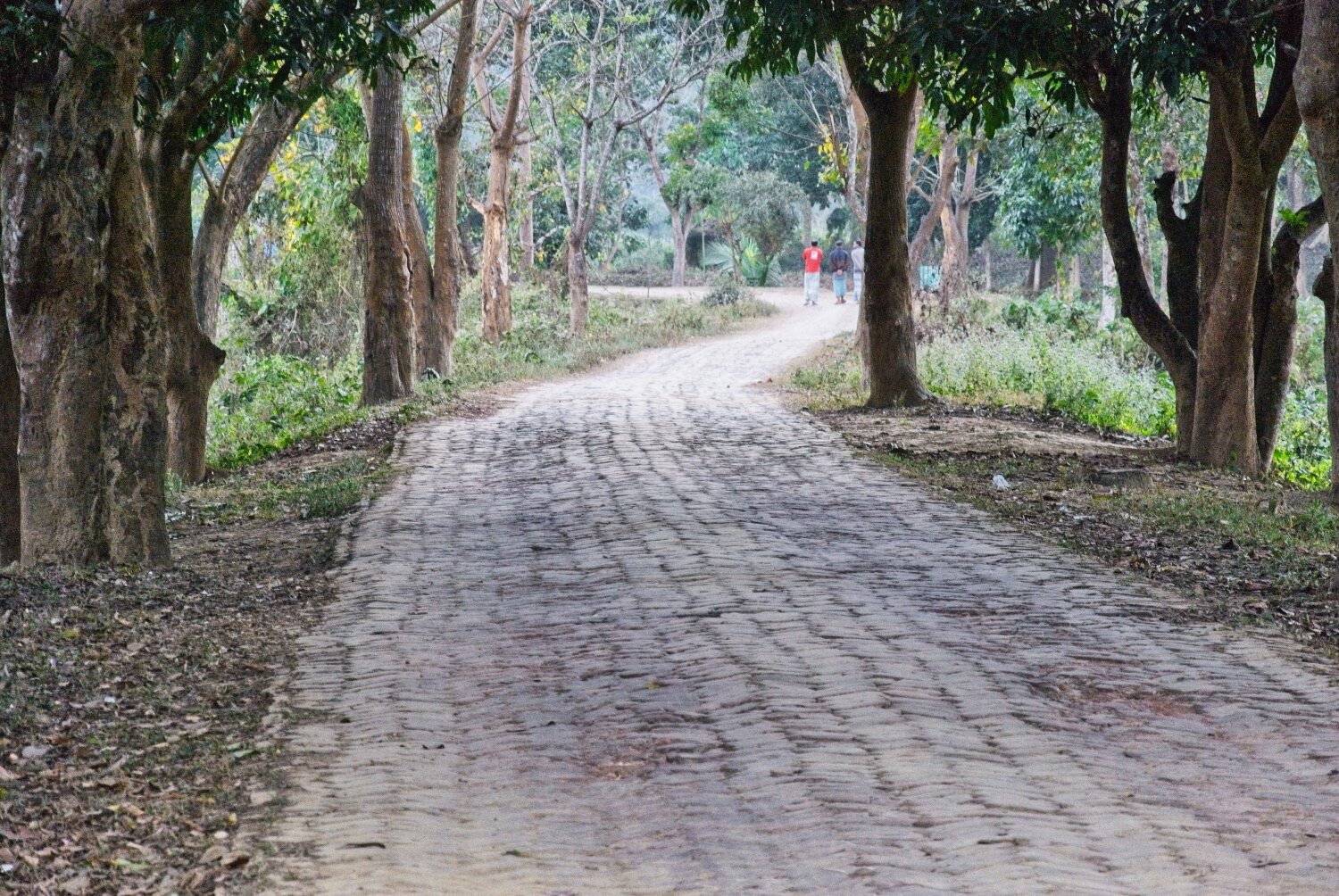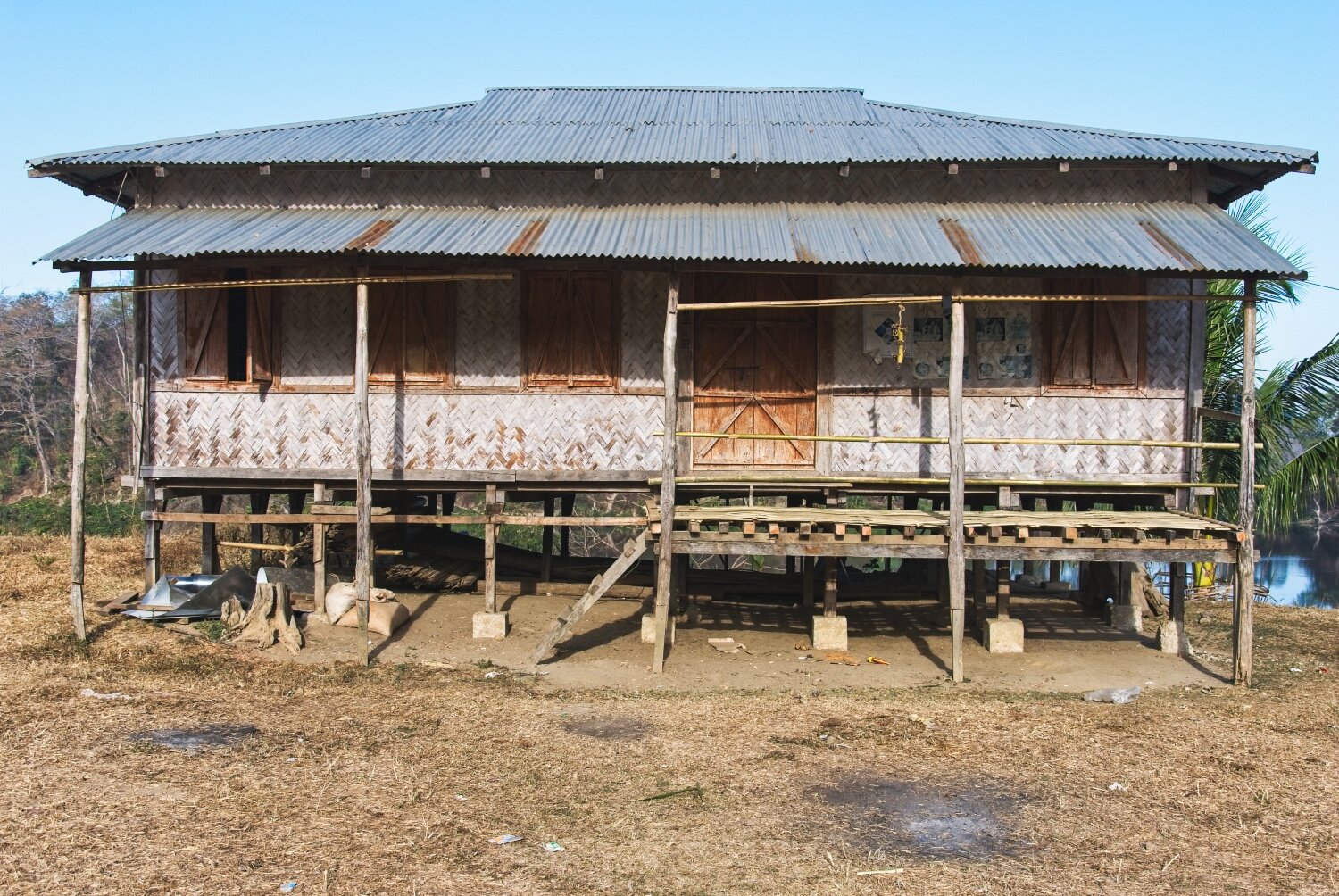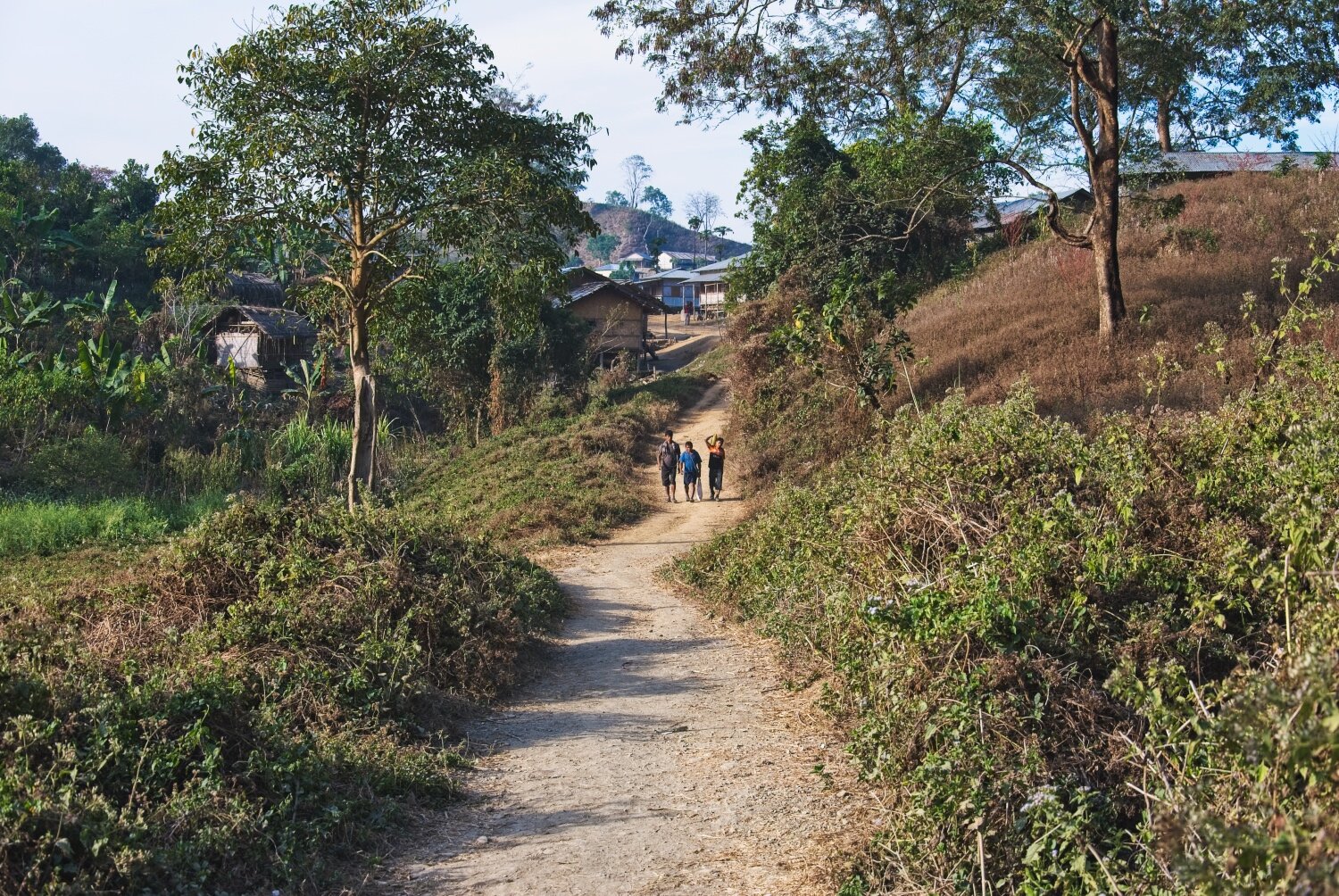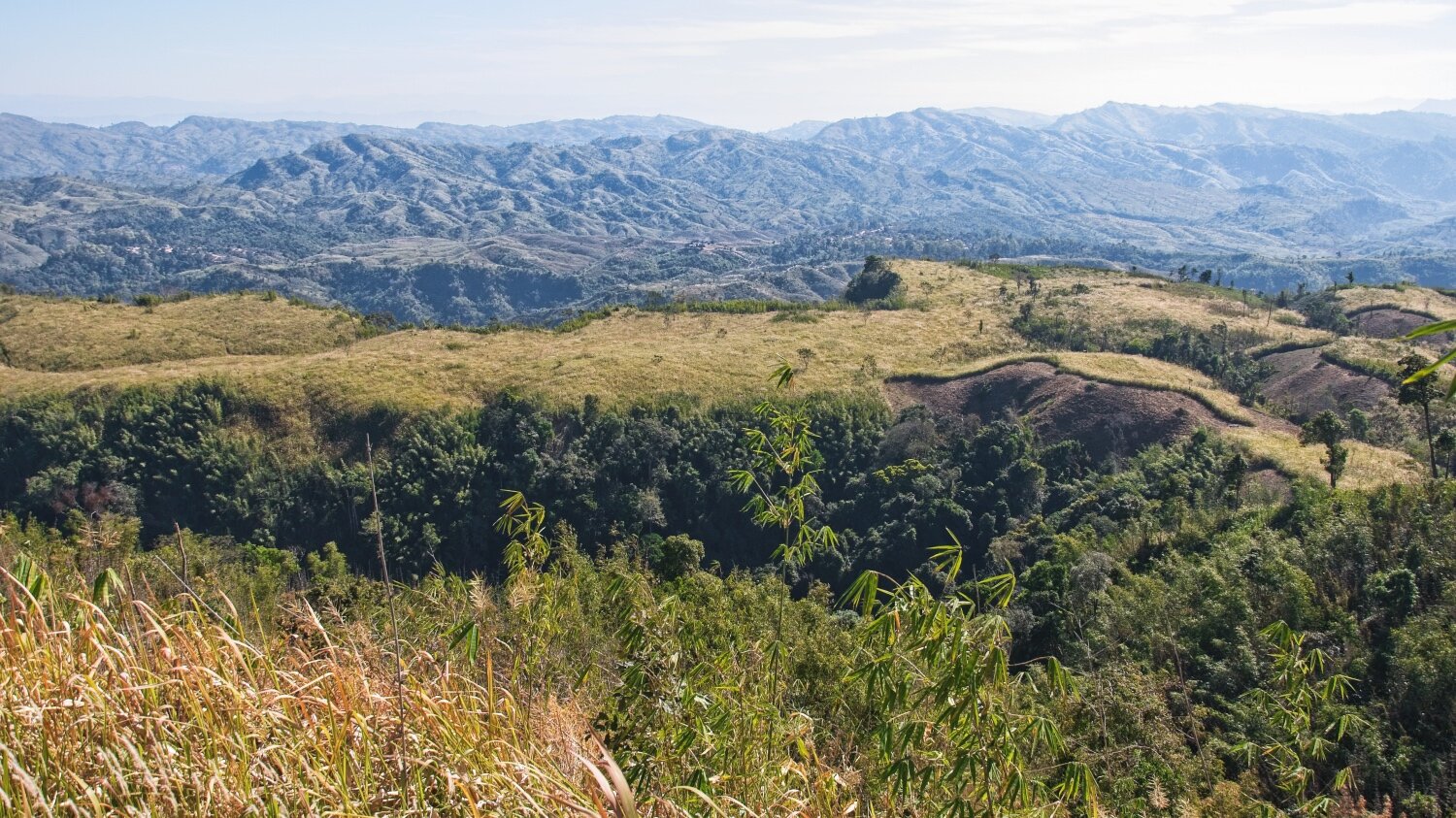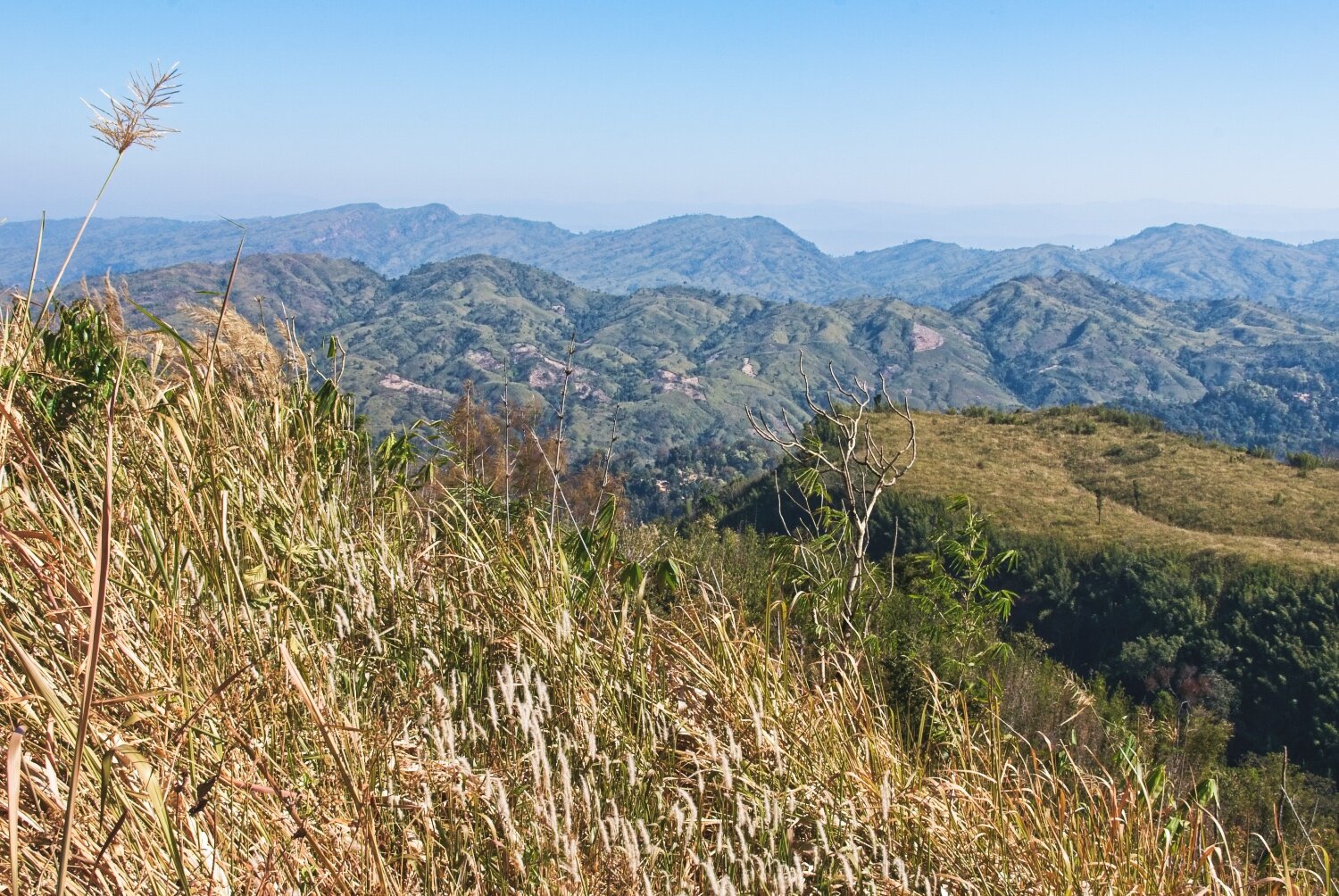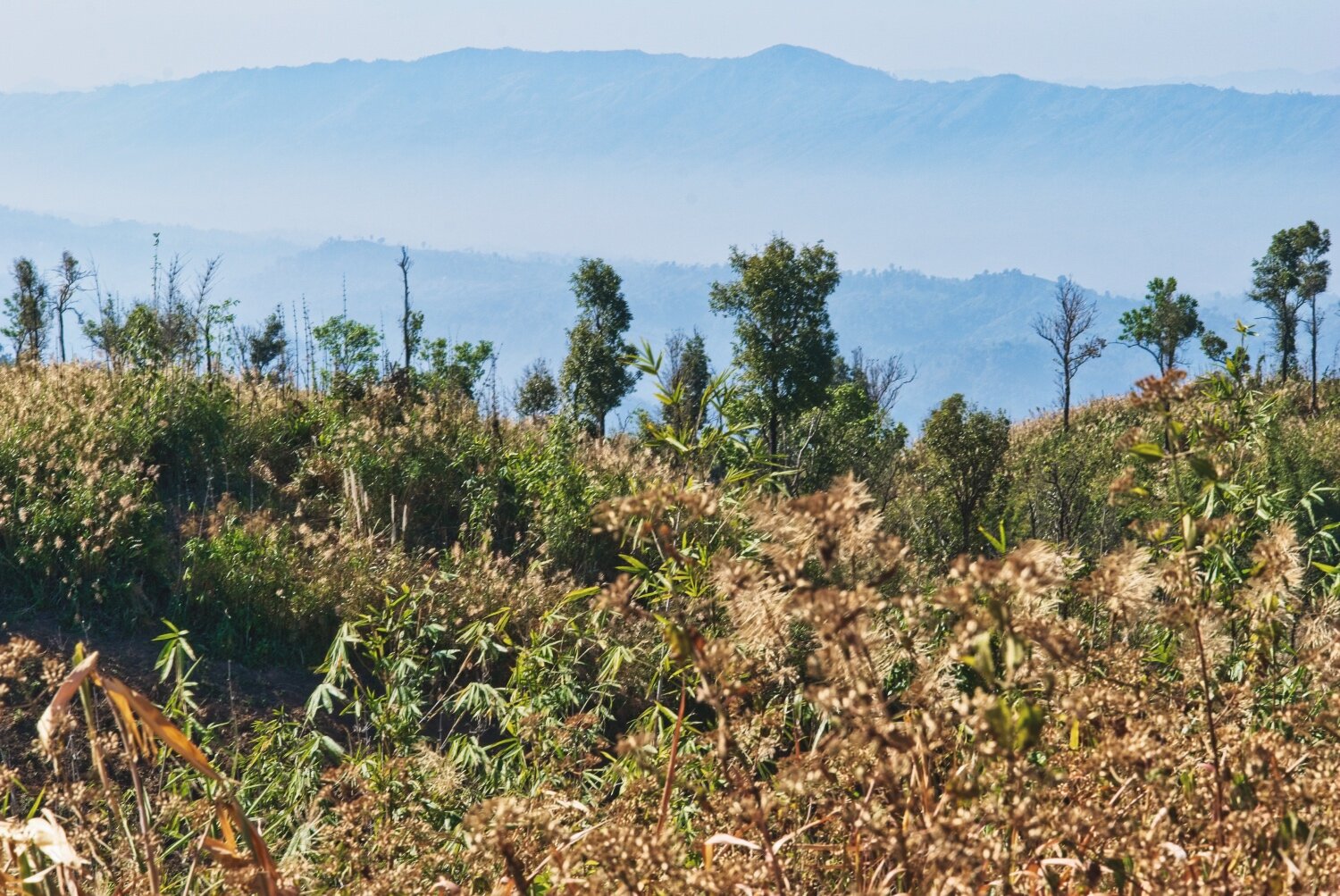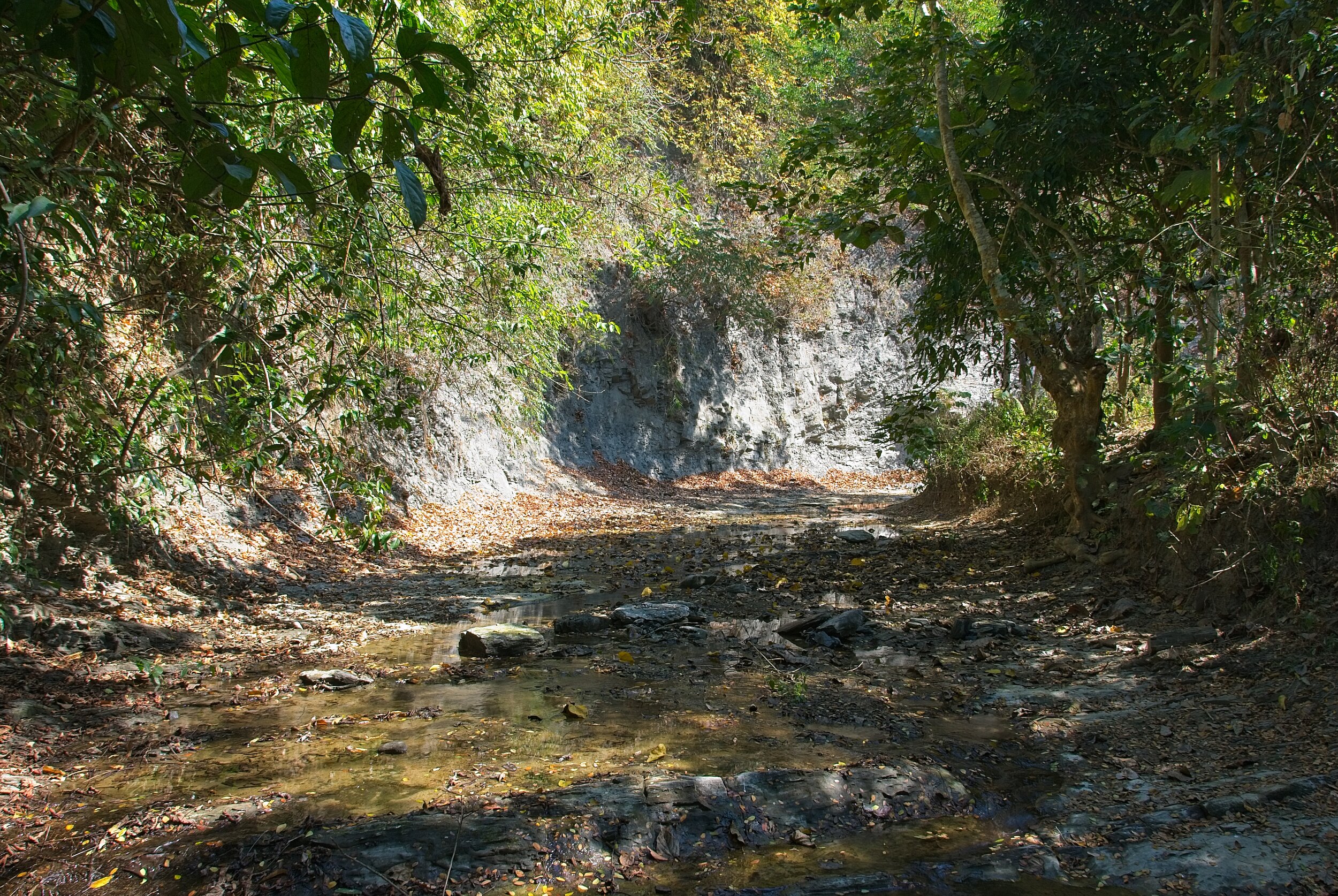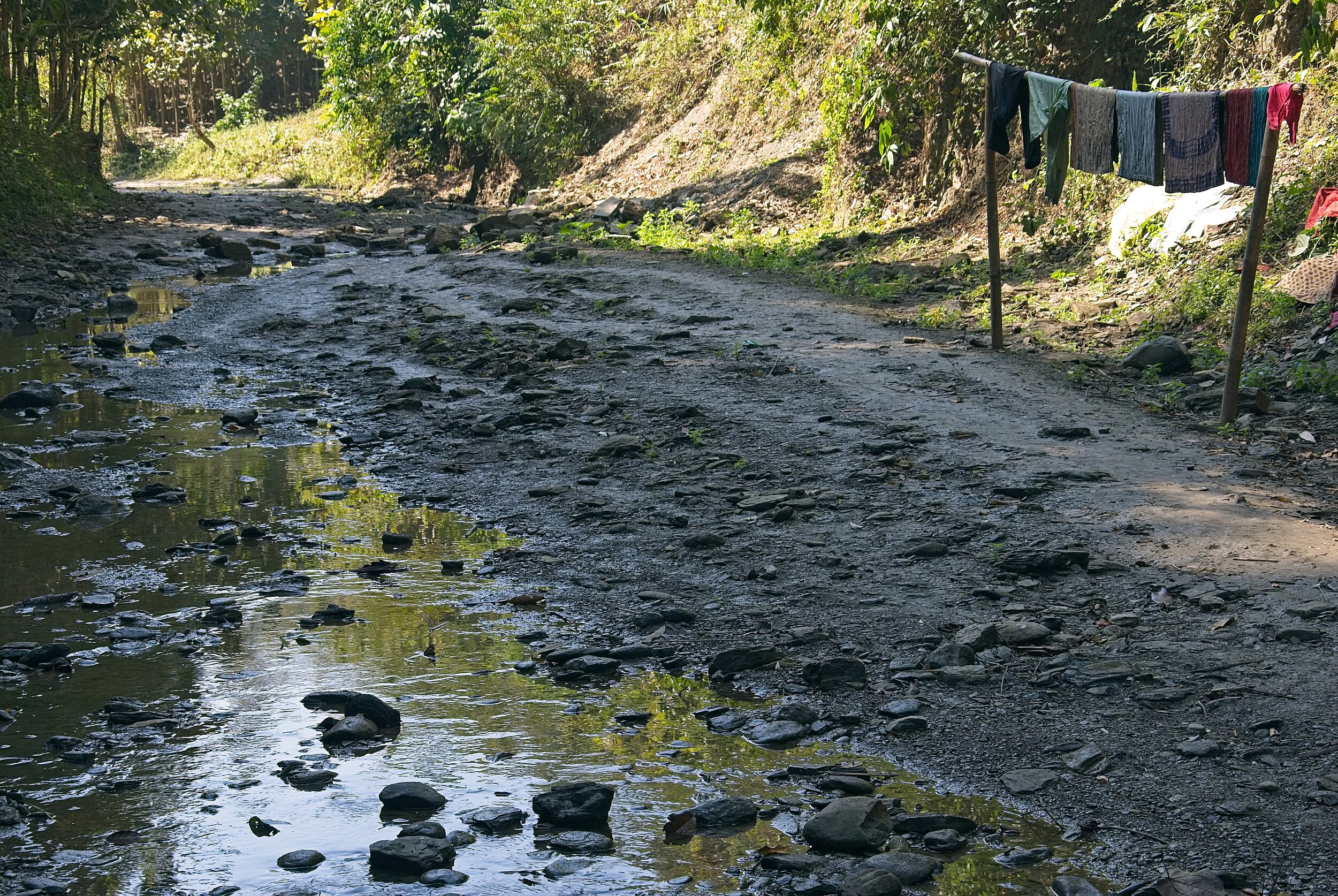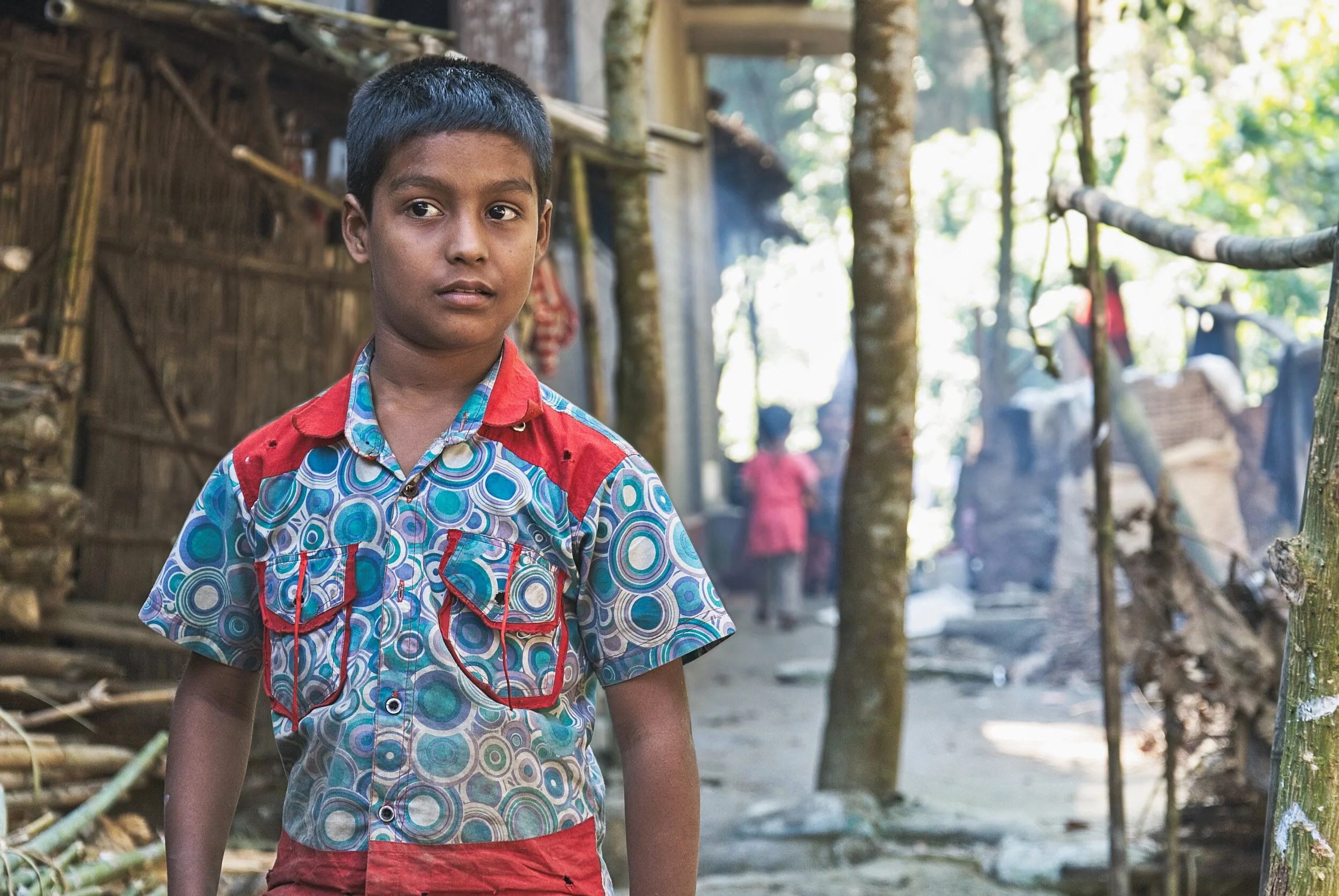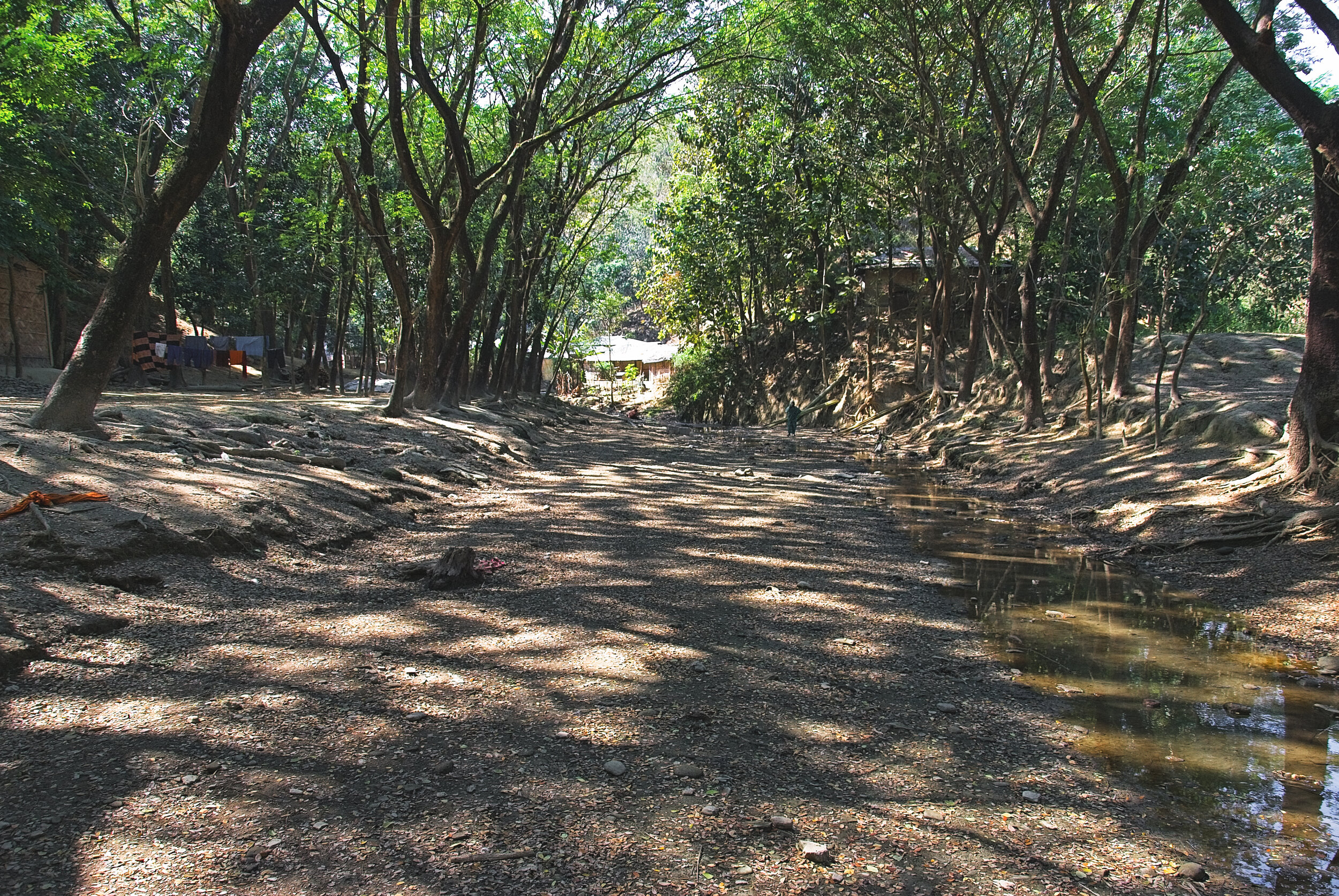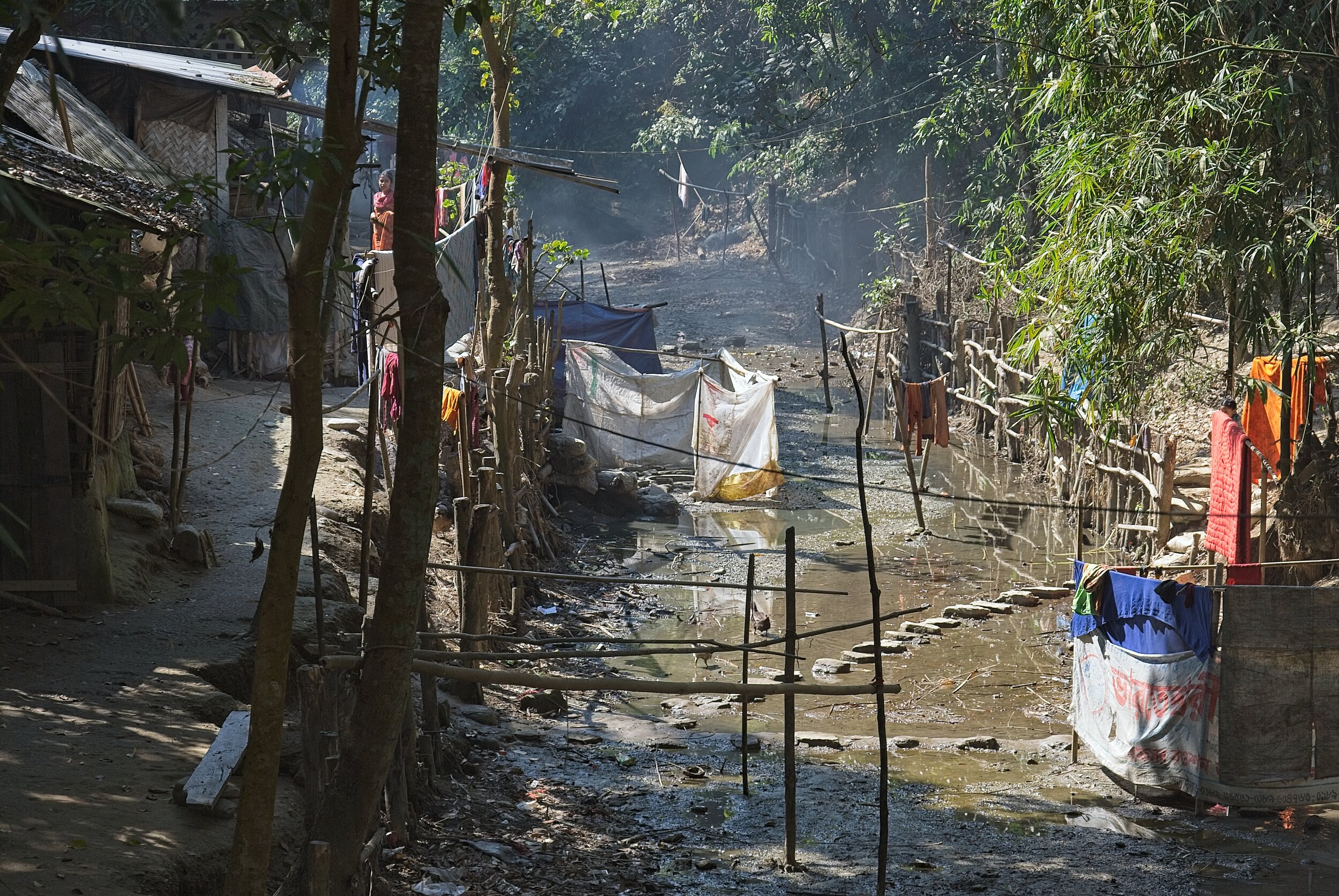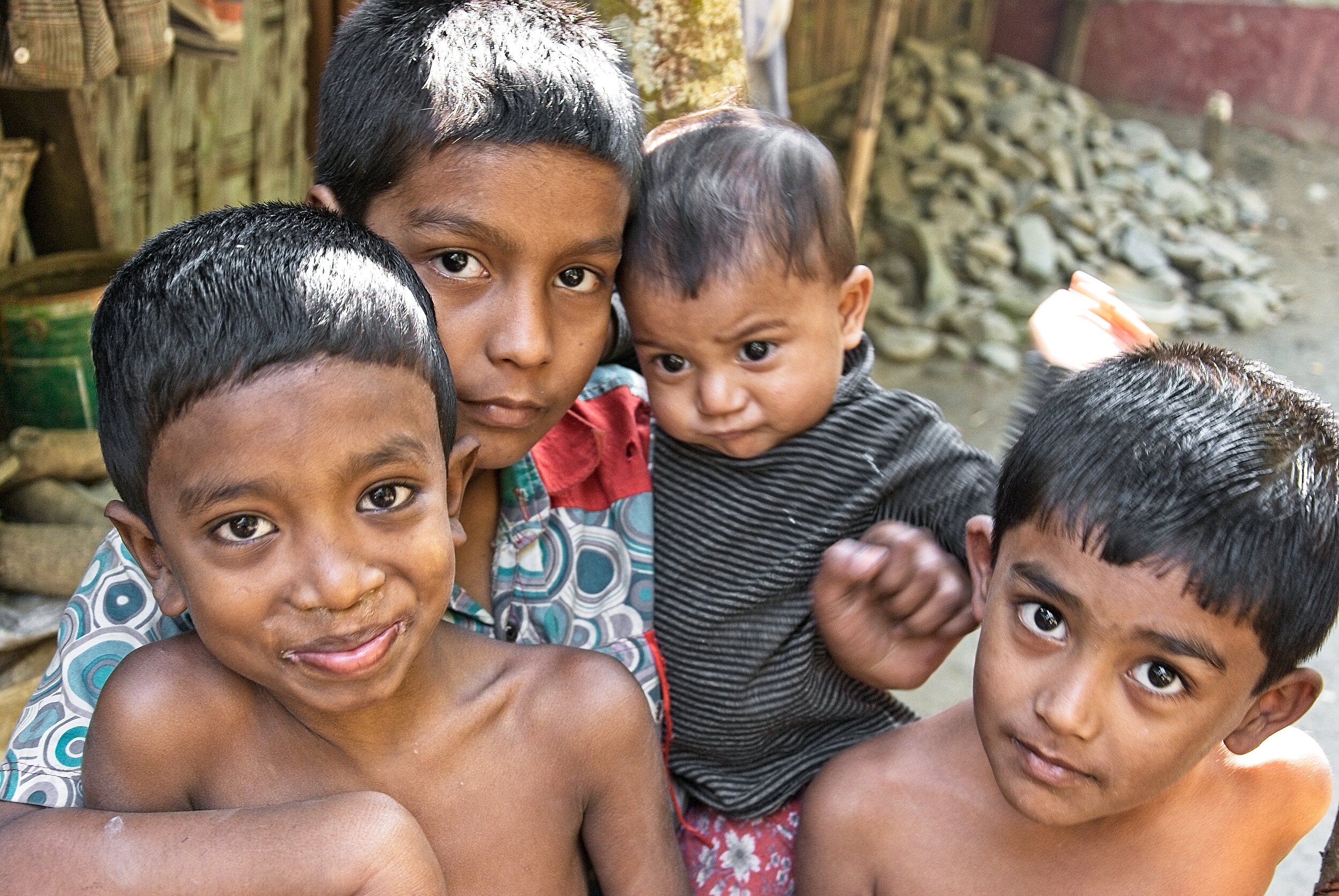112 - Hill Country (Chittagong Hill Tracts, Bangladesh)
AN OVERNIGHT BUS FROM DHAKA TO CHITTAGONG isn’t the comfort-infused joyride you might imagine. The traffic out of Dhaka is chaos, and the road to Bangladesh’s southeast corner is in abysmal shape. Mr. Bus Driver Guy punished the horn relentlessly, a form of vehicular Tourette’s if you will. Even with Valium, sleep was out of the question. And it was nippy. If you pay for an air-con bus, you get an air-con bus… no matter what. I theorized an inextricable link between engine and air-con. You can’t have one running without the other. As if to acknowledge the futility, they handed out blankets before departure.
We made a pit stop for food and potty at 3:30 a.m. What I saw in the bathroom left me awestruck—men at every sink primping like contestants on the Dating Game. Not a hair out of place. The efforts were almost surgical. Did I mention it was 3:30 a.m.? And me with my single pair of black pants, dusty hiking shoes, and generalized untidy disheveledness. People often sized me up and down as if I were wearing a spacesuit. I could never tell if it was curiosity, mild contempt, or both.
I loitered in the restaurant where a barefoot waiter offered to bring me something. I went with coffee. It soon followed with my receipt. You get a receipt for everything in Bangladesh, even a $0.15 Nescafé.
Twice along the way, two men boarded the bus, one with a large video camera, the other with an obnoxious light to film while we the passengers sat with vapid, if not bewildered, expressions. I have no idea why this happened. Promotional video? Perhaps that fueled the primping frenzy I’d witnessed? Who the hell knows? I was half asleep, though never full asleep, per incessant horn.
After arriving in Chittagong, I hopped on a rickshaw (bicycle taxi) to my next bus station. This led to a not-so-near-theft experience. A deviant douchebag made a swipe at my bag as he sped past in the back of a CNG (autorickshaw), a common tactic. He had no chance of success as I had a firm hold, but I didn’t see it coming. There’s a high likelihood my driver was in on it. (Probably a quick text with a message equivalent to “The eagle has landed. The eggs are in the nest. Engage!”)
Pricks.
I stuffed myself into another local bus (no air con) to Bandarban, a town in a southeastern area known as the Chittagong Hill Tracts. This region is home to about half of Bangladesh's tribal population, many of which originated in present-day Myanmar. Hiking opportunities and the allure of cultural novelty captured my imagination.
This “cultural novelty” comes at a price. The indigenous peoples of the area have long been at odds with the central government, dating to independence in 1971, and as far back as Pakistani and British control. A peace accord in 1997 was supposed to mollify both sides, but many provisions have yet to be implemented. A continued military presence is anathema to relative autonomy. I obtained permission to enter the Hill Tracts in Dhaka. My first test came at a checkpoint between Chittagong and Bandarban where I had to sign in. They didn't even look at my papers. First hurdle overcome.
When I arrived in Bandarban, I flagged an autorickshaw and headed to the Hillside Resort (“resort” being a loose term). Basic but more than adequate. It was here I planned my excursion farther into the hills. It would entail another bus followed by a boat ride to the village of Ruma Bazar. One night there and then a four-hour hike to Boga Lake, then another hike the succeeding day to B'desh's highest point, Mt. Keokradong. I was to have two guides, one from Bandarban to Ruma and then another from Ruma to Boga Lake and Keokradang.
Dental grab and go. So many questions… Are those central incisors for Neanderthals? Is that a pile of real human teeth? What the hell is in the vials? Who’s the target demographic? Dentists? Do-it-yourselfers? Magicians?
Ruma Bazar isn’t the most congenial of villages; poverty and discrimination tend to dampen prospects. It’s a hodgepodge of tribal and Bengali peoples with elements of Islam, Hinduism, Christianity, and Buddhism spread throughout. (Buddhism and Islam each comprise over 40%.) After dropping my pack at the guesthouse, I had to register first with the police, then with the military. I sat by a pond sipping tea at a local kiosk while my guide worked out the particulars. After some discussion, I had to write out a statement in my own handwriting declining an escort, choosing instead to forge on with only a guide. Right. I interpreted this as a CYA (Cover Your Ass) precaution, just in case. Nothing I read led me to believe I was in any danger, but absolving local law enforcement of any responsibility for my well-being was a tad unsettling. After my liability waiver, it was off to the army post for an introduction. This involved nothing more than registering my name in a notebook, shaking hands, and exchanging rapid-fire smiles.
Back to my room for dinner. I was meant to sleep inside the village at a “hotel” in the center. My guide suggested I stay up on the hill. Fewer people. Less noise. Although the price was substantially higher, I agreed. This was a mistake and, I believe, the exact moment he viewed me as a person of privilege (or should I say excessive privilege). Most of what occurred afterward was my fault for not having everything spelled out at the onset.
In addition to the guide fee, I was also required to provide food. That first night, both guides were present, so it was dinner for three. When I was quoted a price, they neglected to mention it’d be tripled. No wonder they kept shoveling food onto my plate. And although I must confess the deer meat was delicious, I got the feeling such a feast is reserved for special occasions—weddings, festivals, visiting affluent assholes.
My guide didn’t mention he’d be sleeping in the vacant bed in my room. I couldn't care less, but I suspected the rate was for a double, underscored by the bill I received in the morning. I considered protesting, but I was about to travel into hill country with a dude I barely knew in an area where I was a stranger. I decided to tread lightly and take the hit. Besides, I wasn’t certain of subterfuge.
I bid farewell to the first guide who spoke English and prepared for my journey with the second who hardly spoke any. Or I should say second guides. I was informed the guide from Ruma to Boga might not be able to take me to Keokradang. He wasn’t on the military’s “official” list. Lucky for me, his officially certified friend could accompany us, ensuring passage to Keokradang. Uh-huh. So, now I was paying for two guides instead of one, but only for a day… probably. As a bonus, my lower back chose that day to mount a minor revolt, dishing out a not insignificant amount of pain. Groovy.
And then came the jostling for backpack dominance. They were dead set on carrying everything for me, but I was equally vehement against it. Before I realized the game was afoot, one had my sleeping bag while the other hoisted my pack. Not long after departure, we stopped for tea where I regained control. The shoe was now on the other foot… Ah-ha! My 19-year-old chaperone was a bit dejected, but he would have his redemption.
Most of our walk was along and through a shallow stream, requiring sandals. I knew we had to cross a stream, I didn’t know we’d do so constantly. More language barrier. For the most part, the terrain was flat. Only the last half hour involved a steep incline. Before ascending, we rested. As we were about to set off again, my stealthy scout recaptured my bag and wouldn’t relent. I believe I would’ve had to wrestle the damn backpack off him. I wasn’t pleased but pressed on. I have to admit it was fortuitous, my spine was not cooperating.
Boga Lake? More like Boga Pond. My guide said something about it being large, and I just nodded in agreement. He may have meant deep (which it is), not large (which it isn’t). There wasn’t much to the village surrounding the lake, and my accommodation was little more than a wooden shack with beds. Not a problem, but it was the locals that struck me. These folks (from the Bawm Tribe) weren’t the friendliest of sorts. That’s not to say they were unfriendly, just indifferent. I wasn’t demanding a parade, but considering few foreigners make their way there, I was surprised to receive almost no consideration whatsoever. Not even the children were interested. The reception was a stark contrast to the one I’d received in other parts of Bangladesh—fascination and curiosity. There, they couldn’t give a shit. We were likely all viewed as trespassers. Did they have a say in tourist access? Maybe not. I might resent me if that were the case.
This was more or less the reaction I was to receive in the tribal areas. I’m not drawing any conclusions. Maybe it's cultural. Maybe it's me. Maybe it’s Maybelline. Maybe it's the fact they’ve been marginalized and disenfranchised in a developing nation itself beleaguered by every domestic problem a third-world country could face. I'd be grumpy too. You think the aborigines in America and Australia had it bad? Imagine being pushed aside in Bangladesh?
I was not wanting for sustenance, shocked at the sheer volume. Then again, I was paying for every item, so I suppose there was an incentive to go ahead and cook it all. I’m confident the repertoire wasn’t the common fare. I was served enough food for five festivals and a wedding.
After we visited the military post to check in, I was asked if guide #2 should stay or leave. Huh? I was under the impression he was to depart that day. Clearly, he was hoping to stick around and get another day's wage, but there was little justification for two guides with whom I couldn’t communicate. I played stupid and kept saying I didn’t understand. Guide #2 left, disappointed I'm sure.
The next morning, we were off to Mt. Keokradong. After seeing the Himalayas, standing on the highest point in Bangladesh is slightly more exciting than standing on the highest point in your kitchen. I was underwhelmed, but the walk and the weather were pleasant enough. After about twenty minutes on the “summit,” we returned to the lake. I was slated for another evening there, but I saw no reason to linger. We were also supposed to hike back the way we came, but I opted for a one-hour jeep ride back to Ruma. The ride was worth a go just to experience the “road.”
I thought I was going to spend another night in Ruma, but as luck would have it, I made it back in time to hop on a boat and catch the last train to Clarksville (i.e. bus to Bandarban). Yippie.
Back to the Hillside Resort. The Boga Lake/Mt. Keokradang trip was way more expensive than I'd planned, and not terribly rewarding to boot. In past years, kidnappings were a real and present danger. The threat was minimal at the time (allegedly), but it felt like I'd hired someone to kidnap me, and then paid my own ransom. Outstanding. The Lonely Planet describes Boga Lake as “stunning.” Stunning? I'll give you quaint and peaceful, but stunning? Nuh-uh. You have to wonder if the LP author actually made the trip. I mean, what’s the profit margin on a Bangladesh guidebook? If I were a betting man…
I thought about catching another bus to Chittagong early in the morning. Instead, I checked out the village area near my guesthouse. It involved a short hike to the Tripuri village of Hatibandha. The Tripuri people originate from the present-day Tripura state in India just north of the Hill Tracts. A path weaves along a stream bed beneath a jungle canopy. The response I received from folks on the village edge was similar to Boga Lake—indifference with hints of antipathy.
To describe these people as poor is like saying the Sultan of Brunei is upper middle class. They have little, and it shows. I contemplated turning around as my intruder status made me incredibly self-conscious. Imagine standing in your yard chopping wood, washing clothes, or doing any number of mundane domestic tasks when some asshole with a camera comes sauntering along with a “mind if I have a look at the human zoo” expression. But I forged ahead. This bucolic forest haunt was a wonderfully peaceful scene. I saw a man gathering food for his cow (leafy branches), villagers washing clothes and dishes in the stream, men chopping wood, etc. The rural vignette was enough to push me to the verge of napping.
Residents farther down the line were more receptive and seemed eager to engage. It was an amazing experience, but difficult to process. Abject poverty is unnerving, and although the folks I interacted with bore smiles, their faces projected a pure unadulterated pathos. There was an air of desperation I could almost part like a curtain. These people aren’t forgotten, they’re ignored.
As I returned to the main road, I encountered a lone woman hacking away at a small log. I'd seen her on the way in and remembered thinking I wouldn’t want to be on the business end of her ire. She looked like she could chew coal into diamonds. I passed sheepishly. She hardly acknowledged my existence.
After lunch, I took the twenty-minute stroll down to Bandarban. I'd read about a Tribal Cultural Institute with a museum and a library. My tribal knowledge was lacking, so I deemed this an excellent opportunity to learn more. I’m not sure I ever found it. Not sure? Well, after walking around with that signature doofus expression and making numerous inquiries, a gentleman led me to a series of buildings with an institutional air about them. No signs in English, but it was closed. Marvelous.
In that case, and so many others, the journey was the destination. I still can’t explain why watching life unfold in rural Bangladesh was so damn mesmerizing. Something about the minutia of a country I’d given almost no consideration before visiting made me want to soak up details.
